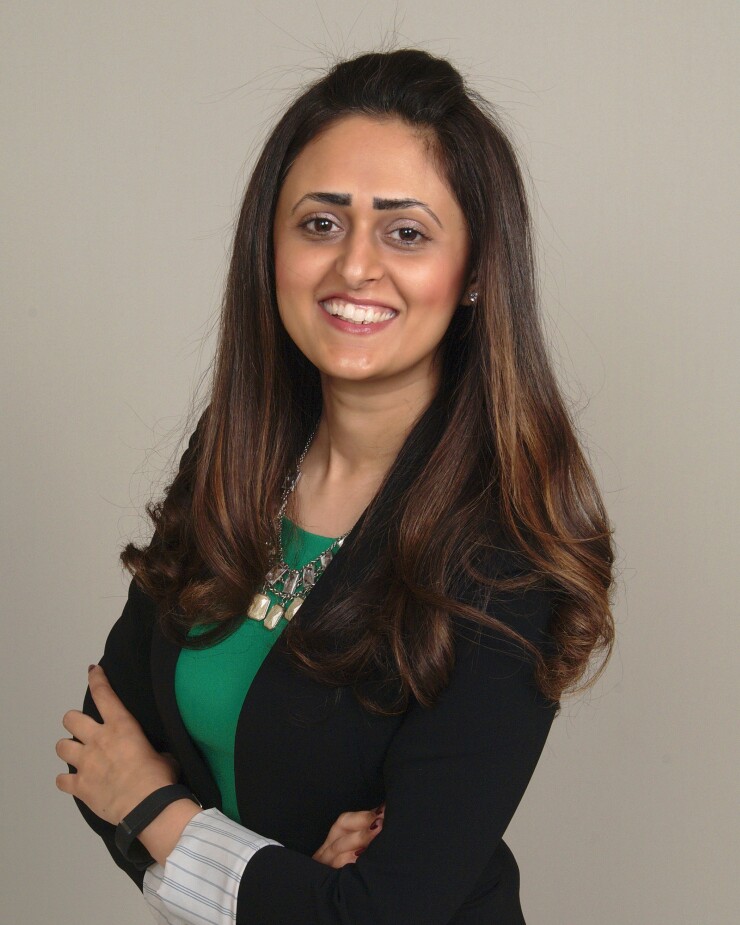Despite initial skepticism of cryptocurrencies and blockchain, TD Ameritrade has significantly changed its view, creating a digital assets and distributed ledger group, trading bitcoin futures and funding a crypto exchange.
Sunayna Tuteja has witnessed the transition firsthand. Until two months ago, crypto was just a subset of her responsibilities as head of strategic partnerships and emerging technologies at the firm. But she took on a new role focused as head of digital assets and distributed ledger technology.
"The more we looked into the nascency and complexity of this technology, we decided we wanted to have more of a myopic focus, which for a crypto nerd like me works out,” Tuteja said at the In|Vest conference in New York this week.

TD Ameritrade had already taken major steps in the direction of crypto. In December 2017, it became one of the first companies to offer bitcoin futures.
“We’ve seen a steady and solid adoption and engagement from our clients,” Tuteja said. “But it’s also helped us learn."
For example, she said some people believe cryptocurrency is only for millennials.
"What we’ve learned with the activity we’ve seen with bitcoin futures is yes, it’s the millennial but it’s also the demographic 45 years and older," she said. "When my mother wants to spend all of our Sunday dinner talking about bitcoin and Libra, it’s gaining massive ubiquity."
Last year, TD Ameritrade also made an investment in erisX, a cryptocurrency exchange regulated by the Commodity Futures Trading Commission.
“The team at erisX is on a journey to build a regulated exchange from day one,” Tuteja said. “That is really important. While we’re very proud of the fact that we lean into emerging technologies as a way to bring new capabilities to our clients, we always want to be doing it in a regulated way, with guardrails and compliance. “
For TD, cryptocurrency is simply a new asset class.
“We believe in the emergence of digital assets and we’re hoping to get to the point where this is just another asset of a client’s overall investment strategy,” Tuteja said.
Though many people in the financial services industry are skeptical about cryptocurrencies, Tuteja said, “It’s OK to be skeptical; I was a skeptic. It’s OK to approach with a sense of skepticism, but make sure you balance it with a sense of curiosity and a perpetual learning mindset. Learn, ask questions, debate, listen to podcasts, and then make up your own mind.”
She acknowledges that one of the biggest challenges remains informing consumers about digital currencies.
“We believe that in a space that’s so complex and constantly evolving, it’s incumbent on us to make sure we’re educating the retail consumer about what they have to know about this emerging asset class,” Tuteja said.
TD’s website and mobile app offer a button customers can tap if they’re interested in trading crypto or learning about crypto. Those questions go straight to Tuteja’s team. TD also recently held a one-day educational event in San Francisco about cryptocurrencies.
“Ultimately consumers make the decisions that are best for them, but we take the fact that we have the privilege of serving 11 million retail clients and 5,000 advisers seriously,” Tuteja said. “So for us it’s how we make sense of everything that’s happening so you can be empowered to make the best decision.”





